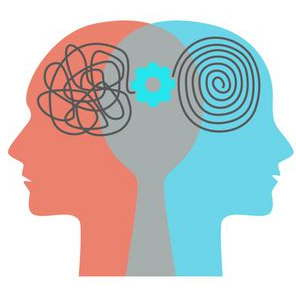Altered-State Therapy ($)
New ideas form from new perspectives, and altered states can provide them.
“When I experienced altered states of consciousness, my whole philosophical structure crumbled, and that terrified me.” — Susan Schneider, philosopher
Psychotherapy
Psychotherapy is a mishmash of means, goals, and understandings… and often misunderstandings. Many people relate therapy with illness and associate it with medicine. It would be more accurate to see psychotherapy as a source of information, learning, and advice.
Going to school is a psychotherapy, as is getting a job, having a family, and getting married. You may not see these things as aimed toward mind expansion, but they either expand your mind or force you to do it yourself.
An illness is something you have, a mental illness is a way you behave, and a problem is something you work on. There is no mechanical definition or organic origin of mental illness, emotional dysregulation, or cognitive confusion. There is rarely any correlated physical condition at all.
It is an unfortunate result of the success of antibiotics and pharmacology that mental struggles are called illnesses, and that those who know the least about normal mental struggles, psychiatrists, are given the greatest authority. Psychotherapy has nothing to do with illness or psychiatrists. Anyone who tells you otherwise is delusional, physically ill, or they’re a psychiatrist.
Psychological Difficulty Is Not Mental Illness
There are no definitive boundaries between therapy, counseling, and consulting, but practitioners and clients are taught that there are. This enforces the fantasy that separate kinds of thinking are required for healing, learning, and leading. Each supports its own mythology, training, certification, authorities, practitioners, industries, and clientele. This enables us to excuse those who are controlling as teachers, defer to those who are psychotic as politicians, and identify those who disagree as ill.
Psychotherapy is a industry created to satisfy consumer demand. Illness is addressed in other cultures with other versions of doctors, and while other cultures have their emotional problems, they didn’t create psychotherapists. That doesn’t mean that psychotherapy is false, it means than it’s not based in physical reality.
There is something specific to our culture that supports psychotherapy. It exists in our culture because customers buy it. Likewise, it exists as a science because we’ve created institutions that maintain it is one. Psychotherapeutic illness, which is not the same as mental illness, is another thing entirely. It is a creation of modern culture.
Psychotherapy is a great invention. It enables us to better understand other cultures and other ways of thinking. Mass hysteria and collective insanity are more likely to be recognized by a psychotherapist than by anyone else.
Psychotherapists are not the same as psychologists. The first group deals with individuals, while the second group deals with politics and social behavior. On the other hand, psychiatrists are mercenaries who work for the pharmaceutical industry. Each group disdains the other.
Psychotherapists are most likely to recognize psychotic tendencies and antisocial behaviors of individuals. Psychologists, who are largely academics, write research papers but don’t say much. Psychiatrists don’t even care. In our increasingly diverse and chaotic modern world, we need watchdogs. And even though practitioners in each of these fields feel superior, all of their droppings fertilize the soil we grow in.
We don’t recognize psychotherapy as a force for collective sanity, but it is. It creates a kind of mucus that coats social behavior. If science is like a religion, psychology is its dogma, and psychotherapy are the rules of behavior. If psychotherapy was given more authority, and was more widely understood, we might suffer fewer sociopaths.
The Conscious and the Unconscious
Psychotherapy is an evolving field. It was born partly from psychoanalysis, which was an offshoot of rational science. Psychoanalysis is a demented misapplication of reason that only emerged through a misunderstanding of consciousness.
Just as a forest begins with the fastest growing trees and thorny underbrush, psychotherapy began with the poorly developed but utilitarian ideas of propaganda, behaviorism, and uniform thinking.
Where indigenous cultures begrudgingly accepted their differences and drew their separate territories, the modern cultures of facism, capitalism, and communism cannot live together. If the Russian invasion of the Ukraine has taught us anything, it’s that the only thing between us and World War III is money.
Had people gotten smarter faster, we might have avoided the first two world wars, but everything happened so quickly. Like the evolutionary explosion of species during the Cretaceous period, the chaos quickly burned itself out and we settled into a golden age of industrial production.
We must excuse psychoanalysis its flaws because it was the first formal attempt at understanding consciousness. It is not a coincidence that psychoanalysis emerged at the same time as fascism, or that most of Freud’s research was not scientific (Placket, 2022; Pomeroy, 2015), as much of today’s psychological research is also not scientific. Most of psychology does not pass the tests of scientific method; psychotherapy certainly does not.
“In 1991, historian of science Dr. Frank Sulloway reviewed six of Freud's principal case studies on psychoanalysis and found them to be 'rampant with censorship, distortions, highly dubious “reconstructions,” and exaggerated claims.'”
— Ross Pomeroy (2015)
Altered States
If you’d like to explore your altered states, then book a free discovery call:
https://www.mindstrengthbalance.com/schedule15
Keep reading with a 7-day free trial
Subscribe to Stream of Subconsciousness to keep reading this post and get 7 days of free access to the full post archives.








